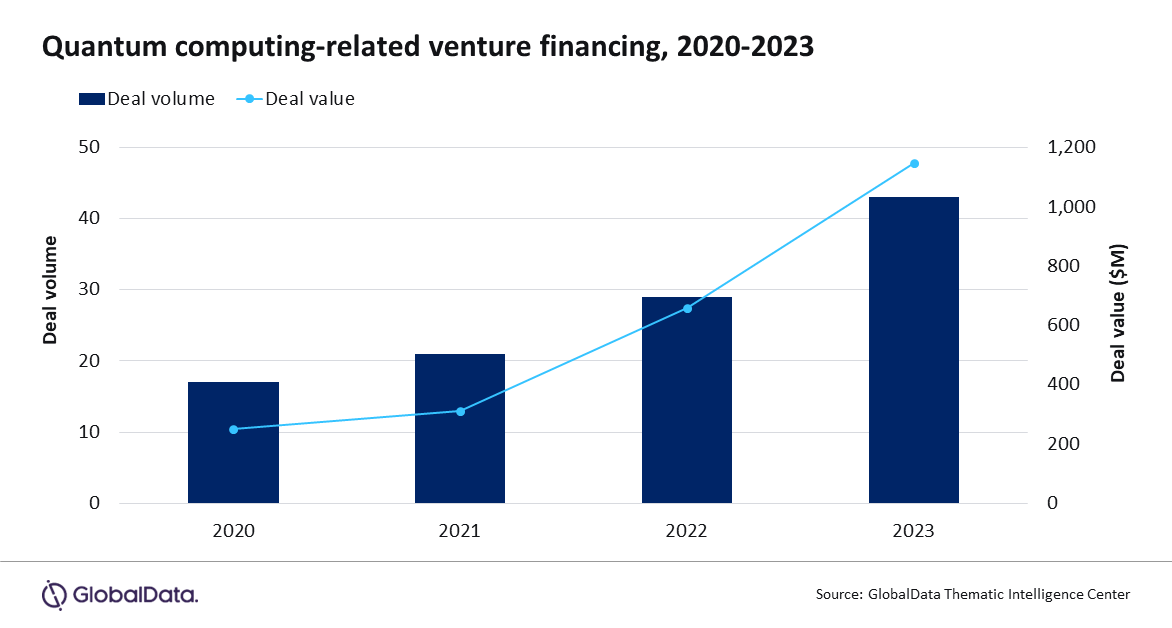
Quantum computing is emerging from the realm of theory into practical applications. With the potential to be revolutionary in cryptography, drug development, financial modeling, and more, quantum computing has attracted numerous Big Tech players, including Alphabet, IBM, Intel, and Microsoft. With an eye toward the future, this transformative technology is also beginning to feature strongly in national strategies. The quantum computing market may be small today, but it is attracting sizeable investment from both the private and public sectors, says GlobalData.
Quantum computers use the properties of quantum physics to store data and perform remarkably rapid computations that would not be possible on classical computers. GlobalData’s latest report, “Quantum Computing,” provides an in-depth introduction to this complex field, industry analysis, and a thorough exploration of the quantum computing value chain.
Isabel Al-Dhahir, Thematic Intelligence Principal Analyst at GlobalData, comments: “Quantum computers are not general-purpose systems but powerful parallel processing systems for carrying out specific tasks. Theoretically, quantum computers can simulate large, uncertain, complicated systems in seconds, including the weather, financial markets, chemical reactions, molecules, and neurons in the human brain. Growing enthusiasm towards quantum computing saw venture capital funding surpass $1 billion in 2023.”

Quantum computing is a geopolitically sensitive technology. The possibility of fundamentally altering industries from pharmaceuticals to finance and the danger posed to encryption technologies have placed quantum computing on national agendas. Numerous countries are developing national quantum strategies. Perhaps the most influential is the US National Quantum Initiative, which attempts to outmaneuver China in yet another front of the broadening technology battleground.
Al-Dhahir continues: “China has made enormous strides in catching up with the US. In 2024, the two countries stand almost neck-and-neck, albeit with very different strategies. Private companies lead the way in the US; in China, expertise is increasingly concentrated within state institutions. Alibaba and Baidu have notably withdrawn from the market, dedicating state-of-the-art equipment to China’s national institutions.”
Following a marked reduction in volatility in mid-2023, the global tech sector has experienced a revival, with both incumbents and startups benefitting. Nevertheless, quantum computing companies may still experience difficulties, particularly as many have no current path to profitability. Furthermore, although inflation is falling across major economies, interest rates remain relatively high, contributing to the difficulty of acquiring funding as venture capitalists seek lower-risk investments with nearer-term returns.
Al-Dhahir concludes: “Many applications stand to benefit from quantum computing. However, it may well be over a decade before the technology is sufficiently mature to usher in the quantum era. The fiendishly difficult engineering problems, excess hype, and pre-revenue phase for many quantum companies mean a protracted quantum winter is in prospect.”





